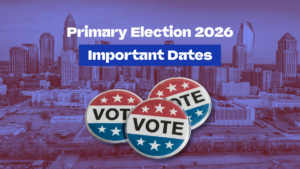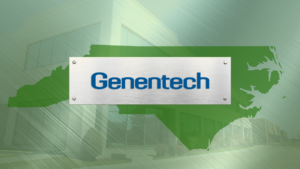Last week, Red Wine and Blue, a grassroots organization in North Carolina, and local partner organizations organized their second constituent-led town hall meeting.
The organizations formally invited Republican Rep. Tim Moore, who was not in attendance. Rep. Moore also was a no-show at the first Red, Wine, and Blue constituent-led town hall back in April of this year.
“The event was organized by constituents and was public and open to all residents in the district,” said Janice Robinson, North Carolina program director for Red Wine and Blue, in a press release. “The purpose was to give Moore’s constituents an opportunity to ask questions of their representative, and share their concerns or support, as Rep. Moore has not held a public town hall open to all his constituents.”
Despite Moore’s lack of attendance, constituents from his district across the political spectrum, along with several local organizations, gathered at Kings Mountain High School to share their stories of how their lives are being impacted by the passage of the One Big Beautiful Bill Act (OBBBA).
Many discussed their concerns with the lack of public education funding, Medicaid cuts, tax cuts for the ultra-wealthy, harmful immigration policies, and how Rep. Moore has fallen short in acknowledging these issues and more.
“We have a lot of people at the table that are making decisions and I’m convinced in being out in the communities that they have no clue what’s going on,” stated Reverend Francis R. Weber, executive director and CEO of the nonprofit Washington Outreach Ministries. “So, when decisions are made, they’re not made based on experience, exposure, or impact or reality.”
Rep. Moore is a proponent of the Trump administration’s “Big, Beautiful Bill,” which was signed into law on July 4, 2025.
The bill includes cuts to the federally funded Supplemental Nutrition Assistance Program, or SNAP, and Medicaid. SNAP and Medicaid help millions of North Carolinians put food on the table and be able to afford healthcare. The bill also raises costs in other areas, such as electricity bills, due to the disregard for the importance of clean energy initiatives.
In conclusion of the town hall, Robinson shared a few remarks for the congressman, stating, “Your blind eye to [vulnerable citizens and your constituents], while giving away our tax dollars to millionaires and billionaires, will only increase our tenacity and determination to keep on speaking out for them and ourselves – even if you’re in the room only as a paper cut-out.”





